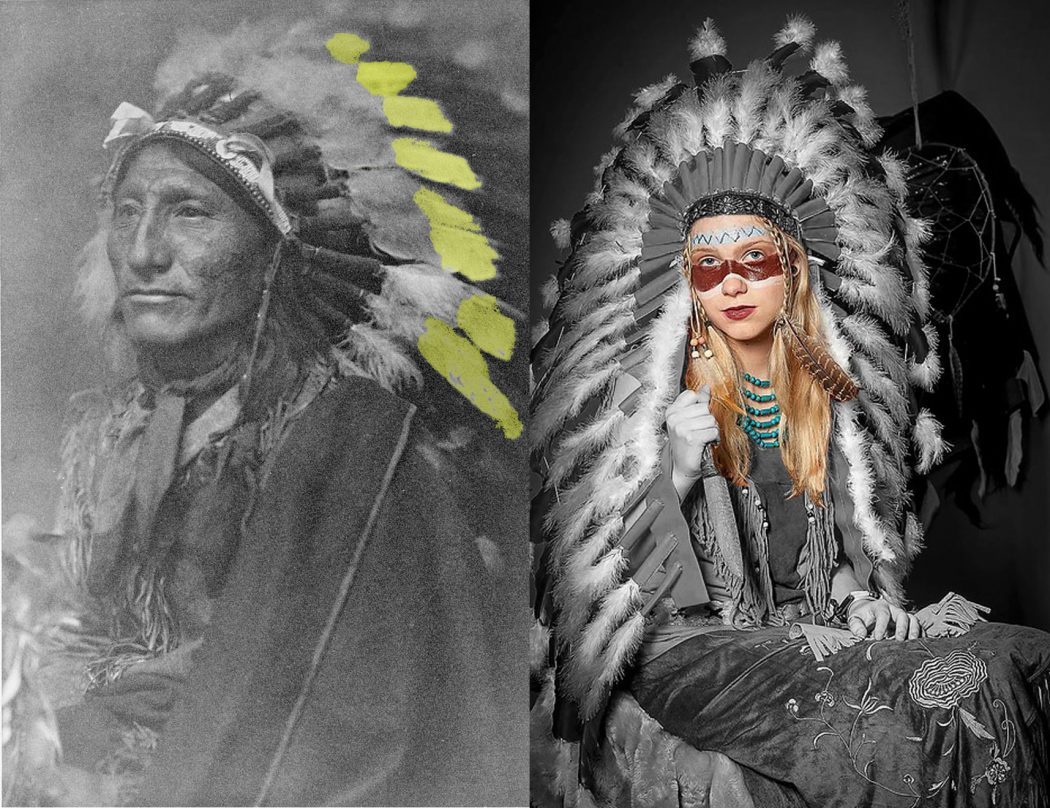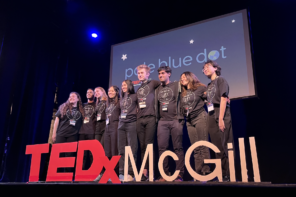In the wake of the “Not your Redmen” protest, many McGill students, as well as members of the Montreal community at large, have been left uncertain as to where the line between cultural appropriation and appreciation is drawn. To combat this, the McGill Indigenous Studies Program hosted a panel discussion addressing the issue. Tomas Jirousek, the Indigenous student responsible for organizing the protest, moderated this discourse in an effort to tackle the repercussions of appropriation, and outline the “dos and don’ts” of the contentious debate.
Membership of the panel, which was held on November 1, consisted of Stephen Puskas, an Inuk filmmaker and activist from Yellowknife, Jennifer Guiliano, professor of Indigenous and American Studies at Indiana University (IUPUI), and Rachel Zellars, McGill lecturer and post-doctoral fellow at the University of Vermont. These three experts reflected on the difficulties confronting Indigenous people, and the important role students must play in ensuring a more inclusive campus for all visible minorities.
Much of this controversy is the result of confusion surrounding the definition of cultural appropriation. As explained by Puskas, the power imbalance is the important variable to consider when determining what falls into this category. He said, “this issue is more about cultural hegemony. There is a social class that’s using culture to legitimize their dominance over [others].”
This issue is more about cultural hegemony. There is a social class that’s using culture to legitimize their dominance over [others].
Puskas argues that the power dynamic between cultures is the pivotal factor, and explains that it stems from the long legacy of colonialism and subsequent Indigenous exploitation in Canada. As a result, any use of Indigenous culture that profits majority groups, as opposed to Indigenous people, is viewed as objectionable. Puskas pointed to Ungava Gin, and Montreal’s Igloofest as some examples.
Guiliano added to this definition by espousing the same advice that she gives students: “Don’t buy anything remotely indigenous from a corporation that is not owned by someone indigenous, or a company that does not compensate an indigenous community for their work”. The entire membership of the panel felt that the appeal of appropriation is its profitable nature, rendering the question of monetary compensation central to the issue.
Considering the repercussions of appropriation is essential to developing a better-informed population. Per Guiliano, by allowing these practices to continue, we are only reinforcing Indigenous victimhood by creating a socio-political climate where minorities must always be the ones to identify injustice.“It’s not enough for you to tell your story, you now need to tell the story of appropriation for everyone in your community,” she remarked.
Zellars noted that the only way to combat appropriation is to “humanize it” by providing primary accounts and avoiding abstract references. The panel agreed that the vast majority of the population is unaware of the presence of appropriation when purchasing certain patterns, jewelry, and other symbols, and emphasized the importance of greater education surrounding the issue.
Guiliano concluded with an appeal to students on the McGill campus, requesting that the majority white administration be held accountable and admit that they do profit from the Redmen name. She stated: “[Accountability] will come. It will be person by person calling out every moment of appropriation and benefit that happens on the [McGill] campus.”
As the possibility of a referendum looms, the panel deduced that McGill students need to be more aware, and put an end to justifying this behaviour as cultural appreciation, instead of appropriation.








